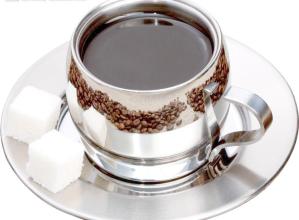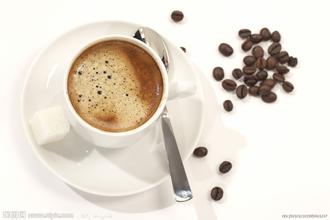The main coffee variety in Jamaica is Silver Mountain Manor.
Today, 90% of post-harvest Blue Mountain coffee is purchased by Japanese. In 1992, Jamaica sold 688 tons of Blue Mountain coffee to Japan, 75 tons to the United States and 59 tons to Britain. Blue Mountain coffee is now in short supply, regardless of price, because the rest of the world can only get 10 percent of its production. For many years Langford Brothers was the sole supplier in Britain. The Edmonds Group was later supplied by Salda Foods of Jamaica.
Blue Mountain coffee differs from other coffees in transportation in that it is transported in 70 kg barrels, an imitation of the Bonifieur barrels produced in Guadeloupe last century. These barrels were originally used to carry flour from England to Jamaica, usually bearing the brand name and manufacturer's name. The Coffee Industry Commission issues certificates for all pure Jamaica coffee and stamps it before export. Jamaica's coffee industry faces a number of problems, such as the effects of hurricanes, increased labor costs and difficulty in mechanizing terraces. Many small estates and farms are difficult to rationalize. Blue Mountain Coffee, however, is one of those coffee retailers that value credibility and want to stock some coffee anyway. A leading British retailer says he will continue to sell Blue Mountain coffee year-round, regardless of price, because he has customers who identify only as "Blue Mountain," such as Wallenford Estate, Silver Hill Estate and J. Martinez's Atlanta Estate. Even the largest planters in the region are small-scale farmers by international standards, many of whom are smallholders whose families have worked the land for two centuries.
Nicaragua's growing conditions are no less than those of Central America. Coffee is grown at high altitudes with shade. It tastes round and balanced with less sharp acid. The main factors are war and hurricane attacks, which make single farms unsustainable. There is no historical data for green bean merchants to track farm data. Until 2003, the bad factors that cause coffee quality were removed. Poor transportation was also fully built. Good coffee gradually emerged.
Nicaragua coffee is grown in fertile volcanic soils, and SHG is the top crop harvested at altitudes of 1,500 to 2,000 meters. The local climate is alpine terrain surrounded by dense fog all year round and covers the whole mountain forest, resulting in a low temperature and humid climate environment. Years of mating evolution of tree species and adherence to the ancient time-consuming treatment process keep natural fruit acids and rich aroma. The shade planting is uniform in sunlight. Coffee fruits grow slowly and indirectly absorb moisture brought by dense fog. Therefore, the flavor of coffee beans is lively and changeable. Such a good coffee growing environment makes coffee with slight acid and warm characteristics. Delicious taste can feel the faint release of fruity and chocolate sweet throat, rich alcohol and multi-layered sweet back, even with the most simple filter brewing, but also to satisfy your taste buds desire, so that drinkers can not help but fall in love with that charming taste

Important Notice :
前街咖啡 FrontStreet Coffee has moved to new addredd:
FrontStreet Coffee Address: 315,Donghua East Road,GuangZhou
Tel:020 38364473
- Prev

Introduction to Snow vein Manor in Bolivia Coffee Manor
Takesi Manor, drinking water and coffee after harvest treatment, using alpine melting cold snow landscape, so we give her a nickname: Takesi Snow vein Manor; in addition to low temperature, pollution-free environment, fertile and well-drained volcanic soil, is also an element of coffee flavor, although the owner of Agrotakesi SA is rich, but deep respect for nature and the way to get along, but
- Next

Cliff Manor Coffee Manor in Jamaica introduction to Blue Mountain Coffee Flavor
But not all coffee produced in Jamaica can be called Blue Mountain Coffee! Although the island is dotted with coffee farms, it is grown only in the four administrative areas of St. Andrew, Portland, St. Thomas and St. Mary, certified by the Jamaica Coffee Industry Council (Coffee Industry Board of Jamaica,CIB), above 2000 feet above sea level in the Blue Mountains.
Related
- Does Rose Summer choose Blue, Green or Red? Detailed explanation of Rose Summer Coffee plots and Classification in Panamanian Jade Manor
- What is the difference between the origin, producing area, processing plant, cooperative and manor of coffee beans?
- How fine does the espresso powder fit? how to grind the espresso?
- Sca coffee roasting degree color card coffee roasting degree 8 roasting color values what do you mean?
- The practice of lattes: how to make lattes at home
- Introduction to Indonesian Fine Coffee beans-- Java Coffee producing area of Indonesian Arabica Coffee
- How much will the flavor of light and medium roasted rose summer be expressed? What baking level is rose summer suitable for?
- Introduction to the characteristics of washing, sun-drying or wet-planing coffee commonly used in Mantenin, Indonesia
- Price characteristics of Arabica Coffee Bean Starbucks introduction to Manning Coffee Bean Taste producing area Variety Manor
- What is the authentic Yega flavor? What are the flavor characteristics of the really excellent Yejasuffi coffee beans?

